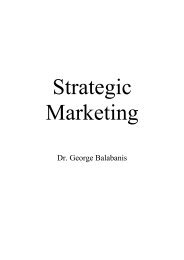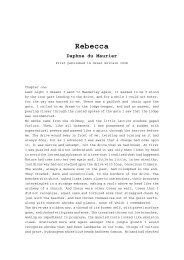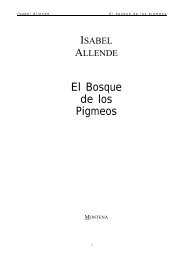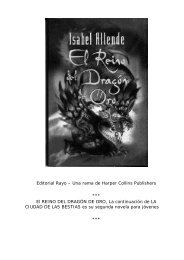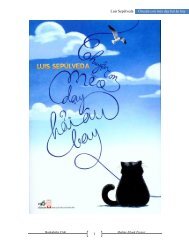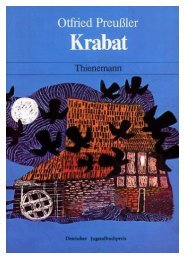- Page 1:
Click for more articles
- Page 4 and 5:
Brand Failures
- Page 6 and 7:
Brand Failures Matt Haig
- Page 8 and 9:
Contents 1. Introduction 1 Why bran
- Page 10 and 11:
Contents vii 6. Culture failures 15
- Page 12 and 13:
4 Brand failures didn’t matter. A
- Page 14 and 15:
6 Brand failures market for which i
- Page 16 and 17:
8 Brand failures without trace are
- Page 19:
Some brand failures have proved so
- Page 22 and 23:
14 Brand failures competitor. As it
- Page 24 and 25:
16 Brand failures In other words, C
- Page 26 and 27:
18 Brand failures Lessons from New
- Page 28 and 29:
20 Brand failures among employees t
- Page 30 and 31:
22 Brand failures years previously
- Page 32 and 33:
24 Brand failures Mustang was the s
- Page 34 and 35:
26 Brand failures 3 Sony Betamax Ac
- Page 36 and 37:
28 Brand failures and retailers, wh
- Page 38 and 39:
30 Brand failures 4 McDonald’s Ar
- Page 40 and 41:
32 Brand failures Lessons from Arch
- Page 42 and 43:
34 Brand failures
- Page 44 and 45:
36 Brand failures up with the idea
- Page 46 and 47:
38 Brand failures Factor two: cool
- Page 48 and 49:
40 Brand failures 6 Sony’s Godzil
- Page 50 and 51:
42 Brand failures the possible exce
- Page 52 and 53:
44 Brand failures 7 Persil Power On
- Page 54 and 55:
46 Brand failures But the advantage
- Page 56 and 57:
48 Brand failures easily, Pepsi rem
- Page 58 and 59:
50 Brand failures 9 Earring Magic K
- Page 60 and 61:
52 Brand failures Lesson from Earri
- Page 62 and 63:
54 Brand failures on it,’ wrote B
- Page 64 and 65:
56 Brand failures Clearly if Corfam
- Page 66 and 67:
58 Brand failures been officially r
- Page 68 and 69:
60 Brand failures ‘There are risk
- Page 70 and 71:
62 Brand failures 13 Oranjolt The d
- Page 72 and 73:
64 Brand failures 14 La Femme Where
- Page 74 and 75:
66 Brand failures patronizing. This
- Page 76 and 77:
16 Clairol’s ‘Touch of Yoghurt
- Page 78 and 79:
18 Maxwell House ready-to-drink cof
- Page 80 and 81:
20 Thirsty Cat! and Thirsty Dog! Bo
- Page 83 and 84: Barron’s Dictionary of Business T
- Page 85 and 86: Extension failures 77 21 Harley Dav
- Page 87 and 88: Extension failures 79 making up the
- Page 89 and 90: Extension failures 81 Keep it tigh
- Page 91 and 92: 23 Crest Stretching a brand to its
- Page 93 and 94: Extension failures 85 ‘No toothpa
- Page 95 and 96: Extension failures 87 24 Heinz All
- Page 97 and 98: Extension failures 89 Lessons from
- Page 99 and 100: Extension failures 91 the no-nonsen
- Page 101 and 102: Extension failures 93 Have a core
- Page 103 and 104: Extension failures 95 In the mid-19
- Page 105 and 106: Extension failures 97 every brand -
- Page 107 and 108: Extension failures 99 sales rose to
- Page 109 and 110: Extension failures 101 However, amo
- Page 111 and 112: Extension failures 103 29 Chiquita
- Page 113 and 114: Extension failures 105 A brand is
- Page 115 and 116: 31 Ben-Gay Aspirin Ben-Gay is anoth
- Page 117 and 118: 33 Smith and Wesson mountain bikes
- Page 119 and 120: 35 Lynx barbershop Lever Fabergé,
- Page 121 and 122: 37 LifeSavers Soda Invented in 1912
- Page 123: 39 Frito-Lay Lemonade Frito-Lay is
- Page 127 and 128: It can be expected that brands will
- Page 129 and 130: PR failures 121 40 Exxon Don’t sa
- Page 131: PR failures 123 including the clean
- Page 135 and 136: PR failures 127 the public. [. . .]
- Page 137 and 138: PR failures 129 42 Perrier’s benz
- Page 139 and 140: PR failures 131 common purpose thro
- Page 141 and 142: PR failures 133 Lesson from Pan Am
- Page 143 and 144: PR failures 135 In addition, Snow B
- Page 145 and 146: PR failures 137 45 Rely tampons Pro
- Page 147 and 148: PR failures 139 Lessons from Rely
- Page 149 and 150: PR failures 141 As Gerber saw it, a
- Page 151 and 152: PR failures 143 regarding youth mar
- Page 153 and 154: PR failures 145 buying about 40 per
- Page 155 and 156: PR failures 147 Be sensitive. By s
- Page 157: PR failures 149 Remember that comp
- Page 161: Brands operate on a global scale. B
- Page 164 and 165: 156 Brand failures of the Bombay St
- Page 166 and 167: 158 Brand failures Coca-Cola. The
- Page 168 and 169: 160 Brand failures Lessons from Kel
- Page 170 and 171: 162 Brand failures Translation trou
- Page 172 and 173: 53 Schweppes Tonic Water in Italy I
- Page 174 and 175: 55 Electrolux in the United States
- Page 176 and 177: 57 Coors in Spain Coors beer had eq
- Page 178 and 179: 59 Clairol’s Mist Stick in German
- Page 180 and 181: 61 American Airlines in Mexico When
- Page 182 and 183:
63 Kentucky Fried Chicken in Hong K
- Page 184 and 185:
176 Brand failures ment. Pretty soo
- Page 186 and 187:
178 Brand failures 65 Quaker Oats
- Page 188 and 189:
180 Brand failures Lessons from Sna
- Page 191 and 192:
The people behind a brand are its m
- Page 193 and 194:
People failures 185 66 Enron Failin
- Page 195 and 196:
People failures 187 67 Arthur Ander
- Page 197 and 198:
People failures 189 68 Ratner’s W
- Page 199 and 200:
People failures 191 met comedians w
- Page 201 and 202:
People failures 193 was out, Planet
- Page 203 and 204:
People failures 195 is wrong to lea
- Page 205 and 206:
People failures 197 had lost the su
- Page 207:
People failures 199 tortilla brand
- Page 211 and 212:
Brands, like people, have a fear of
- Page 213 and 214:
Rebranding failures 205 73 Consigni
- Page 215 and 216:
Rebranding failures 207 of the name
- Page 217 and 218:
Rebranding failures 209 74 Tommy Hi
- Page 219 and 220:
Rebranding failures 211 style that
- Page 221 and 222:
Rebranding failures 213 in the Repu
- Page 223 and 224:
Rebranding failures 215 former secr
- Page 225 and 226:
Rebranding failures 217 Lessons fro
- Page 227 and 228:
Rebranding failures 219 neighbours
- Page 229 and 230:
79 British Airways When British Air
- Page 231:
CHAPTER 9 Internet and new technolo
- Page 234 and 235:
226 Brand failures now believe bran
- Page 237 and 238:
81 Pets.com In the mid-1990s, when
- Page 239 and 240:
Internet and new technology failure
- Page 241 and 242:
Internet and new technology failure
- Page 243 and 244:
Internet and new technology failure
- Page 245 and 246:
Internet and new technology failure
- Page 247 and 248:
Internet and new technology failure
- Page 249 and 250:
Internet and new technology failure
- Page 251 and 252:
Internet and new technology failure
- Page 253 and 254:
Internet and new technology failure
- Page 255 and 256:
Internet and new technology failure
- Page 257 and 258:
Internet and new technology failure
- Page 259 and 260:
Internet and new technology failure
- Page 261 and 262:
Internet and new technology failure
- Page 263:
Internet and new technology failure
- Page 267:
All brands will eventually fail. Th
- Page 270 and 271:
262 Brand failures The $600-million
- Page 272 and 273:
264 Brand failures Lessons from Old
- Page 274 and 275:
266 Brand failures interview. ‘An
- Page 276 and 277:
268 Brand failures 91 Ovaltine When
- Page 278 and 279:
270 Brand failures 92 Kodak Failing
- Page 280 and 281:
272 Brand failures tive strategy if
- Page 282 and 283:
274 Brand failures 93 Polaroid Live
- Page 284 and 285:
276 Brand failures launch of its SX
- Page 286 and 287:
278 Brand failures ‘was that they
- Page 288 and 289:
280 Brand failures 94 Rover A dog o
- Page 290 and 291:
282 Brand failures 95 Moulinex Goin
- Page 292 and 293:
284 Brand failures 96 Nova magazine
- Page 294 and 295:
286 Brand failures The cycle of lau
- Page 296 and 297:
288 Brand failures As with most bra
- Page 298 and 299:
290 Brand failures For the Levi’s
- Page 300 and 301:
292 Brand failures to the stores in
- Page 302 and 303:
294 Brand failures One argument was
- Page 304 and 305:
296 Brand failures market is 18-24
- Page 306 and 307:
298 Brand failures 100 Yardley cosm
- Page 308 and 309:
300 References
- Page 310 and 311:
302 References Malmsten, E, Portang
- Page 312 and 313:
304 Index candour see honesty Capit
- Page 314 and 315:
306 Index ideas failures 71, 82 hea
- Page 316 and 317:
308 Index and extension 93 New Coke
- Page 318:
310 Index Taiwan 163 tampons 137-39




